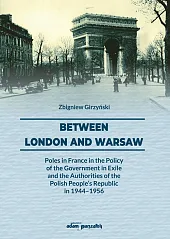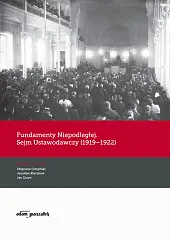Between London and Warsaw
Between London and Warsaw
Opis publikacji
[…] in many respects the work goes beyond the outlined timeframe,generally its beginning was set in 1944. After the Allied invasion of Normandy, on June 6, 1944, the gradual liberation of occupied France began. This gave the Polish authorities in exile and the communists preparing to take over power in the country a new opportunity to create their own policy towards the Polish emigration living on Seine and Loire. […] The final time caesura is symbolic, also for the situation in emigration, in 1956. The breakthrough of October 1956 – so important and still underestimated for outlining not so much the changes within the political system as the life of Poles in the country – was also important for the policy towards emigration. The change in the tactics of the authorities of the Polish People’s Republic (the strategy remained basically unchanged until the end of the state’s existence in symbolic 1989) towards emigration (those living in France, especially taking into...
[…] in many respects the work goes beyond the outlined timeframe, generally its beginning was set in 1944. After the Allied invasion of Normandy, on June 6, 1944, the gradual liberation of occupied France began. This gave the Polish authorities in exile and the communists preparing to take over power in the country a new opportunity to create their own policy towards the Polish emigration living on Seine and Loire. […] The final time caesura is symbolic, also for the situation in emigration, in 1956. The breakthrough of October 1956 – so important and still underestimated for outlining not so much the changes within the political system as the life of Poles in the country – was also important for the policy towards emigration. The change in the tactics of the authorities of the Polish People’s Republic (the strategy remained basically unchanged until the end of the state’s existence in symbolic 1989) towards emigration (those living in France, especially taking into account its size) was, like the breakthrough of October 1956, initiated much earlier, already in 1954. The most important limit is the initiation of the so-called second repatriation in 1955. It basically coincides with the caesura drawing the borders within the emigration itself […]. The crisis caused by the refusal of President August Zaleski in 1954 and the undermining (in practice by the most important figures of emigration policy) of the founding myth of the Polish State in Exile – legalism, made it difficult to talk about any well-thought-out and systematised policy of the emigration authorities after that date against the Polish diaspora in France. From the Introduction
Informacje
Działające od 1990 roku wydawnictwo Adam Marszałek jest jednym z liderów branży. Profil działalności skupia się na różnych obszarach –... więcej→



